Do you need help?
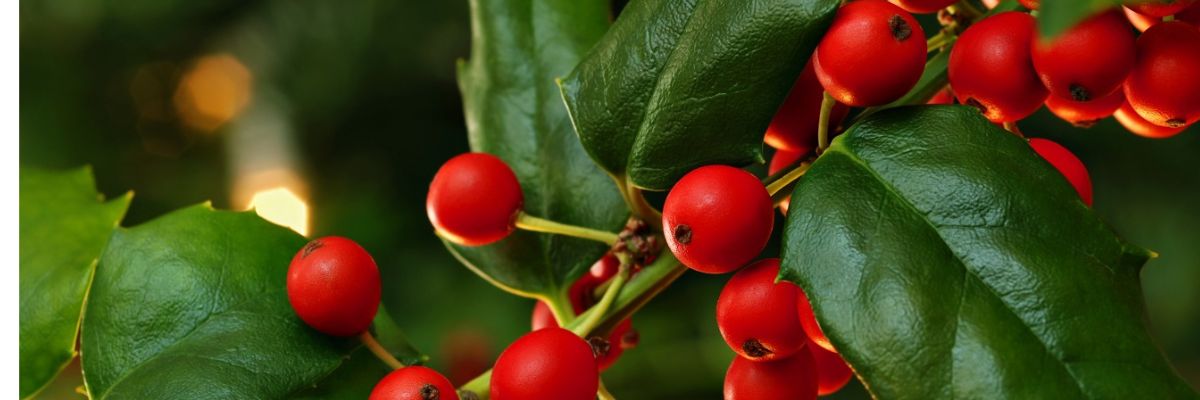
Don’t make Christmas a mistletoe misery
Many common Christmas plants, such as poinsettias, mistletoe, and holly, are toxic to pets. Ingesting these plants can lead to serious health complications, and in some cases, immediate veterinary care is necessary to prevent further harm.
Here, we list the plants you should keep out of your pet’s reach this festive season. If you think your pet may have ingested parts of any of these, please contact your vet immediately or, out of hours, find your nearest Vets Now pet emergency clinic or 24/7 hospital here.
Poinsettia
Mistletoe
Holly
Lily
Ivy
1. Poinsettia
Poinsettias are originally from Mexico and are famous for reaching full bloom in December. Their iconic red petals are leaves, and they’re mildly toxic to dogs and cats. Eating poinsettia can cause drooling, oral pain, and vomiting – but only if they’re ingested in large enough quantities.
On the plus side, the plant contains an irritant sap, and it’s unlikely your dog would eat enough to cause serious harm because of the taste and irritation.
As with almost all poisons, the size of your dog and the amount they ingest will determine how sick they become. The bigger the dog, the less likely they are to suffer after eating a small amount. Our advice is simply to keep poinsettias out of reach.
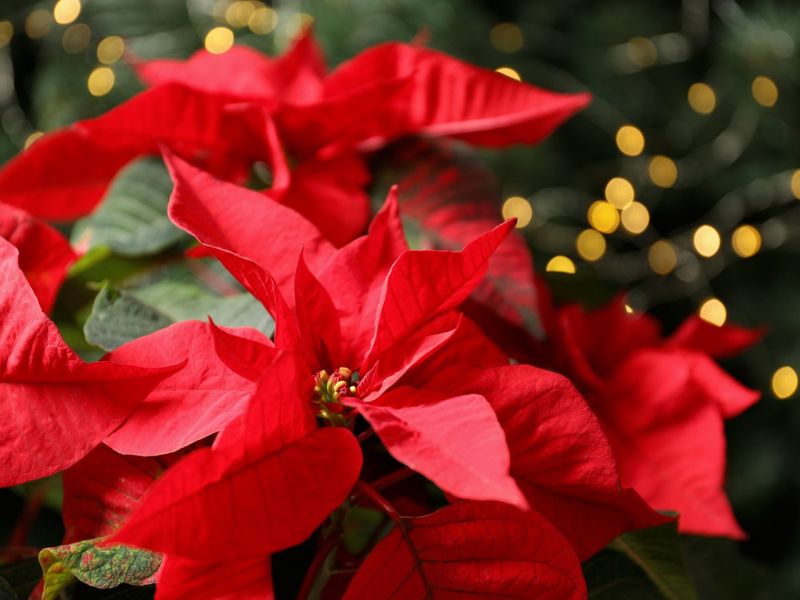
2. Mistletoe
The plant of love, Mistletoe, is as big a part of Christmas as Santa, but did you know it’s also a vicious parasite that maintains its green colour by sucking nutrients out of trees?
On top of that, it is a highly toxic plant to cats and dogs and, if eaten, can cause vomiting, diarrhoea, laboured breathing, shock, and even death from cardiovascular collapse.
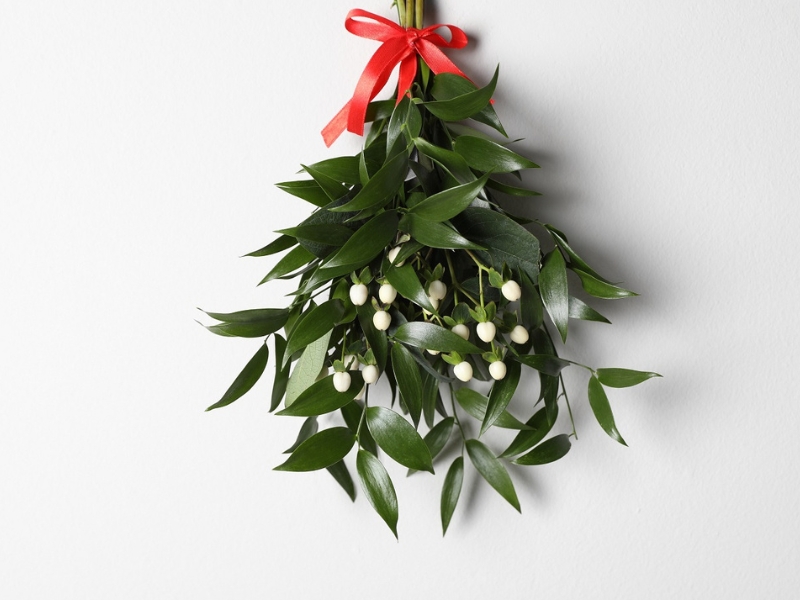
3. Holly
While holly berries are an important winter food source for birds, they’re toxic to dogs, cats and humans. Several varieties include saponins, which can cause severe vomiting and diarrhoea if eaten.
Other symptoms can consist of drooling, lip smacking and head shaking. Don’t bank on the plant’s spikes putting inquisitive pets off either, and, for the superstitious, it’s worth bearing in mind that it’s considered unlucky to bring holly into the house before Christmas Eve.
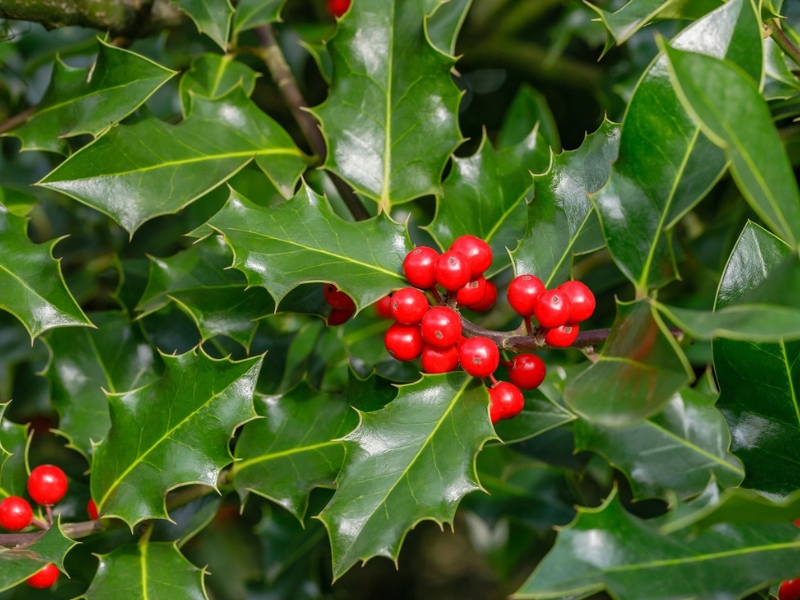
4. Lily
Certain types of lily – those from the Lilium or Hemerocallis species – are very dangerous for cats and are considered a highly poisonous plant. They contain highly toxic substances, and ingestion of just two or three leaves, or even water from the vase, can be potentially fatal.
While lilies don’t pose quite as severe a risk to dogs, they are still toxic. The calla lily, peace lily, lily of the valley and palm lily are all deemed dangerous to dogs.
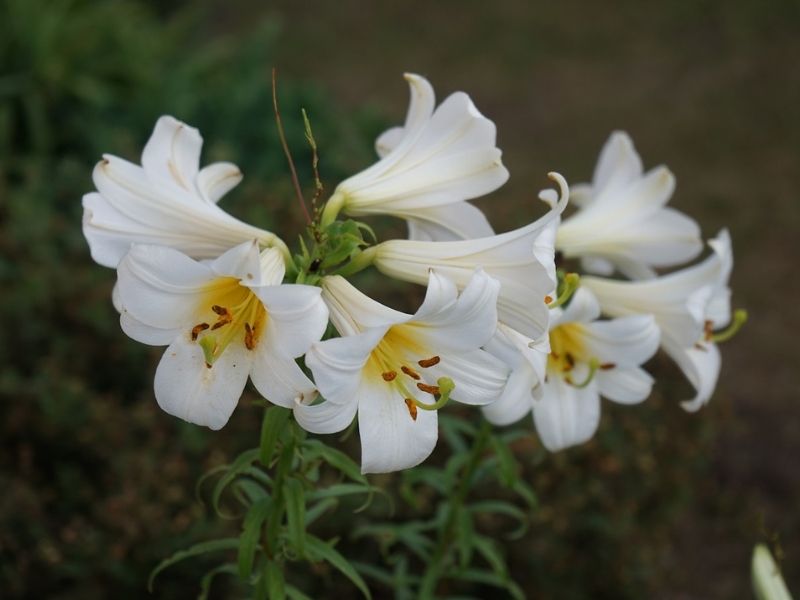
5. Ivy
If your dog eats ivy, also known by its Latin name hedera helix, they will likely develop vomiting, diarrhoea and drooling. In more severe cases, you may also see blood in their vomit or faeces.
Skin contact with ivy is also dangerous. It can cause conjunctivitis, itchiness and rashes. Notably, the poison ivy, rhus radicans, is a different plant. It can also trigger a painful reaction in dogs, although it only grows in North America.
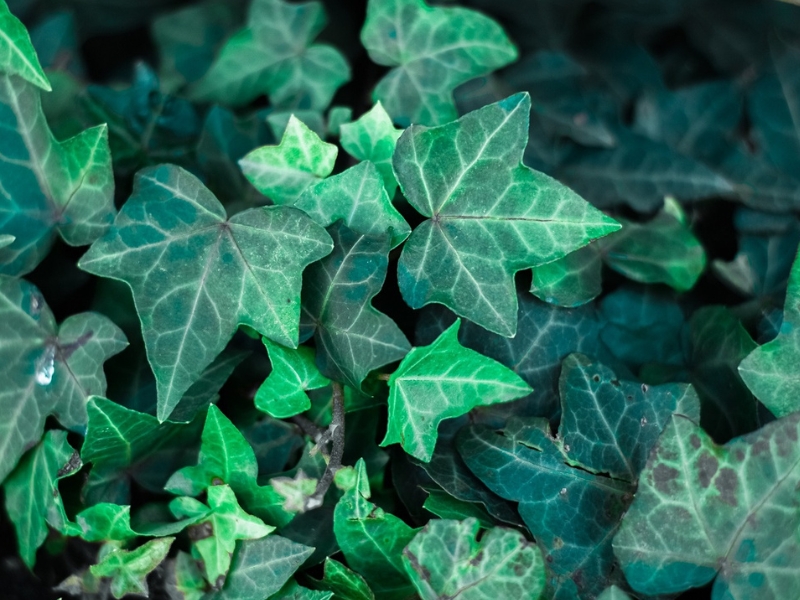
Protecting your pet from toxic plants
The holiday season brings a variety of festive plants into our homes, many of which can be toxic to pets. Here are some tips to ensure your pet stays safe:
- Research toxic plants: Familiarise yourself with plants that are toxic to your pet, such as poinsettias, holly, and mistletoe.
- Keep plants out of reach: Display toxic plants on high shelves or in hanging baskets where your pet can’t reach them. This simple step can prevent accidental ingestion.
- Choose non-toxic plants: Consider decorating with non-toxic plants or artificial trees and flowers. These alternatives can provide the same festive look without the risk.
- Supervise your pet: Watch your pet when it is around plants. This will help you intervene quickly if it shows interest in nibbling on something it shouldn’t.
By following these tips, you can create a festive and safe environment for your pets.
What to do If your pet ingests a toxic plant
If your pet ingests a toxic plant, acting quickly and calmly is crucial. Here are the steps you should take:
- Remain calm: Panicking can lead to poor decision-making. Take a deep breath and focus on the steps you need to take.
- Identify the plant: Try to identify the plant your pet ingested. This information will be vital for your vet.
- Call your vet, or if out of hours, contact your vet or your nearest Vets Now emergency clinic. Reach out for guidance on what to do next. Vets can provide specific advice based on the plant and the amount ingested.
- Provide information: Be ready to share details about the plant, the amount ingested, and the time of ingestion. This will help the experts give you the best possible advice.
- Follow instructions: Carefully follow the instructions provided by your veterinary professional. This will ensure your pet receives the appropriate care.
By staying calm and following these steps, you can help ensure your pet receives the best possible care in an emergency.

